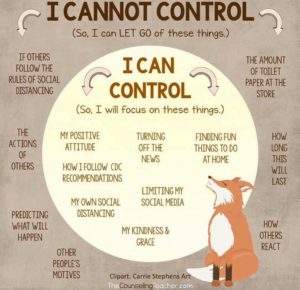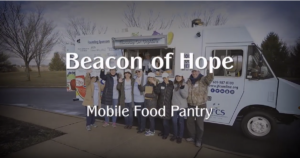Parenting Post #1
In these uncertain times, when everyone was quickly forced to juggle work from home roles, remote learning responsibilities, heightened anxiety about keeping your family nourished and healthy, on top of personal fear of the unknown landscape of life during coronavirus, parenting challenges have been augmented. We are introducing weekly Parenting Posts which will provide helpful information, skills and support for those in parenting roles – during the global health crisis and beyond. The obstacles faced by someone in the parental role did not begin during coronavirus and will not end with the outbreak, and this weekly blog will provide long lasting skills.
Parenting Post #1: An Introduction and Addressing the New Normal
Welcome to this new series on parenting! If you are reading this, you may well have children or are just reading once you’ve run out of Netflix shows to watch. For those of us with school-aged children, especially those who work, life in the time of coronavirus has extra layers of stress and anxiety. Not only are we homeschooling our children, but we are doing it while worrying that we have enough shelf stable food and antibacterial soap and also attempting to attend Zoom meetings, conference calls, and write something for our boss. Add-in the usual responsibilities of cooking, cleaning, making sure our kids stop touching their faces, and trying to forge human connections for them via FaceTime. It’s a lot and if you feel like you are working more than you did before the pandemic—and even then you felt like you were going 24/7—you are probably correct.
So, let’s be clear: this first post is more about self-care for parents than about parenting itself. We’ll get to parenting in future posts, but for right now, listen up: You must take some care of you!
If you do not practice self-care, you will not be able to support those around you. What can you do to take care of yourself now and not burn out? Take advantage of the still-open and free outdoors, take a walk or a run or bike ride. There’s no reason to feel guilty if you can have your partner watch the kids for 30-40 minutes. For single parents, free time can be harder to find. Consider the advantages of nap time, for those with younger children. Put the little one in a stroller and walk while your child naps. If your children are school-aged but not old enough to technically leave alone, you can still go outside, where they can see you from the window and do something, even just some deep breathing alone. Stuck inside? Lock yourself in the bathroom, after explaining that you need a little time out, open up the Headspace App and use their free series “Weathering the Storm” for a quick mental getaway. Take a bath or shower, FaceTime with a friend. The main thing is that you explain to children old enough to get it that you need 10-15 minutes alone. If they’re still napping, be sure to use that time for your self-care. Sure, you might think you need to clean up and probably you do, but you absolutely have some time in there just for you. Read, stretch, utilize a free app (see below), watch a little TV. Whatever it takes to restore yourself just a little.
- This New York Times Article on differentiating between stress, worry, and anxiety is a helpful read.
- Apps that are currently free: Down Dog Free until May 1 (yoga, barre, High Intensity Interval Training), Headspace “Weathering the Storm.”
Parenting Posts presented by Claire Brown, LSW
 We are all dealing with grief now—loss of normalcy; loss of connection; fear of economic toll, nervous anticipation of the future. For those in our community who are mourning the loss of a loved one, the grief is intense and even more isolating because we do not have the traditional community supports to provide some sense of stability. As holiday times approach, the Empty Chair has become the Empty Table and the Empty Room. What are some tools that can give you the support you need?
We are all dealing with grief now—loss of normalcy; loss of connection; fear of economic toll, nervous anticipation of the future. For those in our community who are mourning the loss of a loved one, the grief is intense and even more isolating because we do not have the traditional community supports to provide some sense of stability. As holiday times approach, the Empty Chair has become the Empty Table and the Empty Room. What are some tools that can give you the support you need?


 Every day we learn more about this virus and its effects and we wonder when it will end. When will life get back to normal, back to our regular routine? This is new territory for all of us to navigate. Imagine trying to drive cross-country with no GPS and no map. You’ll eventually get there – but which route do you take? How long
Every day we learn more about this virus and its effects and we wonder when it will end. When will life get back to normal, back to our regular routine? This is new territory for all of us to navigate. Imagine trying to drive cross-country with no GPS and no map. You’ll eventually get there – but which route do you take? How long 



